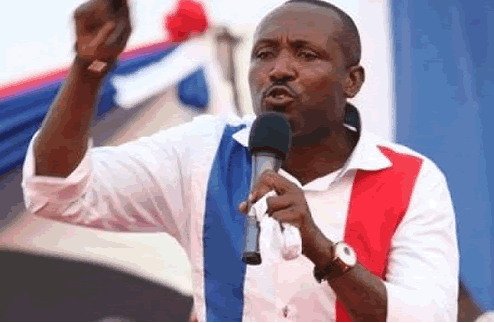
Albert Kwabena Dwumfour, the President of the Ghana Journalists Association (GJA) has urged governments worldwide to prioritise the protection and safety of journalists, according to a report on citinewsroom.Speaking at a panel discussion in Addis Ababa, Ethiopia, MrDwumfour expressed deep concern over the growing number of attacks on journalists globally, including fatal incidents.He further emphasised the critical need for governments to demonstrate greater commitment to ending impunity by ensuring the arrest and prosecution of those responsible for these crimes.
The call was made during a two-day event marking this year’s International Day to End Impunity for Crimes against Journalists. The panel discussion, themed “Ensuring the Safety and Protection of Journalists by Addressing Impunity: A Responsibility for the World,” was jointly organised by the Federation of African Journalists (FAJ) and the International Federation of Journalists (IFJ).
This year’s commemoration of the International Day to End Impunity for Crimes Against Journalists was jointly organised by UNESCO and the African Union (AU) under the theme: “Safety of Journalists in Crises and Emergencies.”
Among the event’s highlights was the launch of the Virtual Scroll – a screen projection that displayed the casualty profile of 1,653 journalists who have been killed worldwide between 1993 and 2023.
Among the victims was Ghanaian investigative journalist Ahmed Suale, whose murder in 2019 remains unresolved, with no arrests made five years after his death.
First of all, The Chronicle commends Albert Kwabena Dwumfour for using such a big platform to advocate for the safety of journalists in Africa.The safety of journalists is not just a national concern; it is a global imperative.
According to UNESCO, at least 86 journalists were killed globally in 2022, a sharp increase from previous years, marking one journalist killed every four days. The International Federation of Journalists (IFJ) corroborates this data, showing that nearly 1,700 journalists have been killed in the past two decades. These numbers underscore an urgent need for collective global action to protect journalists who are on the front lines of truth-telling, often in hostile and life-threatening environments.
Among the tragic stories of journalists lost is Ghana’s Ahmed Suale, an investigative reporter whose murder in 2019 remains unsolved. His death, along with the unresolved murders of hundreds of journalists worldwide, is a stark reminder of the culture of impunity that continues to embolden those who wish to silence the press.
The failure to bring Suale’s killers to justice speaks volumes about the lack of accountability that is pervasive in so many countries.
The consequences of such unchecked violence extend beyond the individuals who lose their lives. Each attack on a journalist is an assault on freedom of the press, the public’s right to know and ultimately democracy itself.
When journalists are intimidated, silenced or killed, it stifles investigative reporting, weakens transparency and undermines the ability of the public to hold power to account. This chilling effect on journalism reverberates globally, fostering an environment where misinformation and corruption can thrive unchallenged.
Research by the Committee to Protect Journalists (CPJ) highlights the impact of impunity on press freedom: more than 80% of journalist murders go unpunished. Shockingly, 18 countries have been repeatedly named in CPJ’s Global Impunity Index, with Somalia, Syria, and Iraq topping the list. The absence of accountability not only puts journalists at further risk but signals to perpetrators that their actions will bear no consequences.
Leaders who either tacitly allow or actively enable violence against journalists must face international scrutiny. Such sanctions should serve as a deterrent, making it clear that governments have a responsibility to uphold press freedom and protect those who seek to expose the truth.
Furthermore, international bodies must work towards a binding agreement that ensures countries are held accountable for crimes against journalists, with an independent mechanism to monitor and report on cases of impunity.
With the world witnessing a surge in crises, from political uprisings to natural disasters, journalists are essential in providing accurate information that informs and empowers societies. Their role becomes even more critical in these high-risk situations, yet they are increasingly targeted as a means to suppress information.
The protection of journalists is a collective responsibility. Governments, civil society, and international organizations must work together to enforce protections and end impunity. We must remember that a free press is not just a pillar of democracy; it is the bedrock of a fair and just society.
The post Editorial: Prioritising The Protection And Safety Of Journalists Is A Must appeared first on The Ghanaian Chronicle.
Read Full Story








Facebook
Twitter
Pinterest
Instagram
Google+
YouTube
LinkedIn
RSS